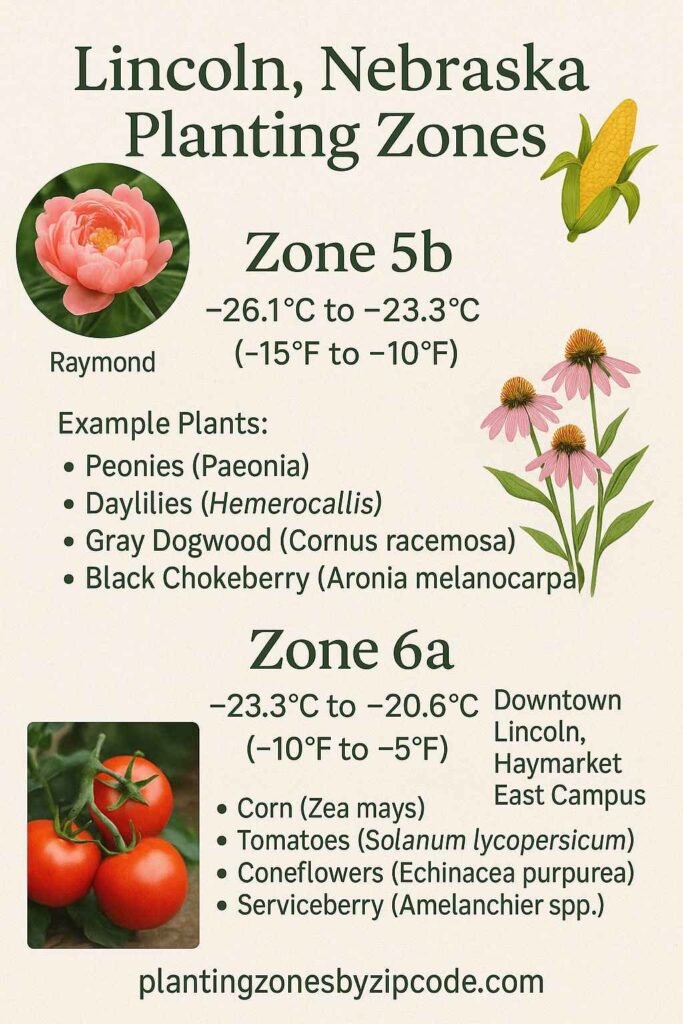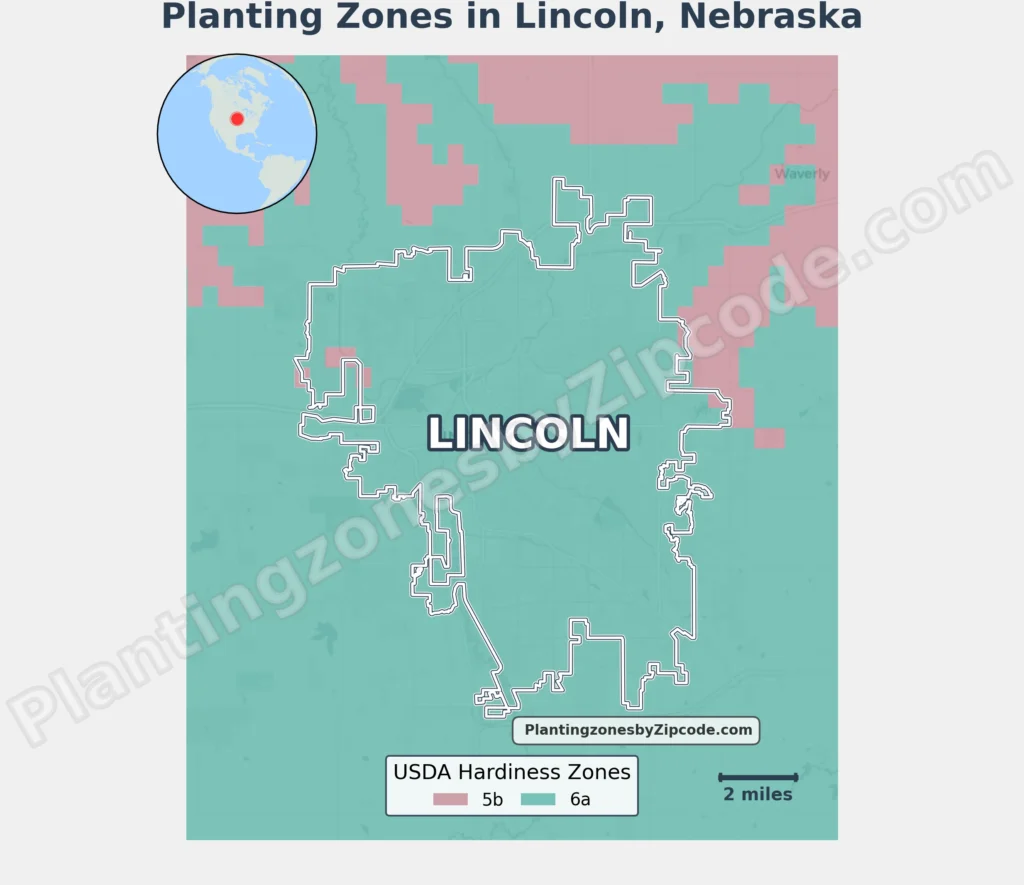The 2 USDA planting zones in Lincoln, Nebraska are USDA Zone 5b and Zone 6a, according to latest USDA data. The 2 planting zones in Lincoln, Nebraska are listed below.
- Zone 5b: Zone 5b has winter temperatures from -26.1°C to -23.3°C (-15°F to -10°F) and covers the Raymond area and its surroundings.
- Zone 6a: Zone 6a has winter temperatures from -23.3°C to -20.6°C (-10°F to -5°F) and spans most of Lincoln, including Downtown and Haymarket.
To verify your Lincoln, Nebraska, USDA zone use our three tools given below, zipcode to planting zone search tool, interactive map, or planting zone table.

Lincoln Planting Zones by ZipCode
Enter your Lincoln 5 digit Zipcode to find its USDA Planting Zone.
Lincoln Planting Zones Map
Select or type your Lincoln location in the search box below to find its USDA Growing Zone.
City Name
Lincoln Area Planting Zone
Planting Zones
Planting Zones
Lincoln Planting Zones Table
Following table lists all the Lincoln locations with their USDA Hardiness Zones.
| Lincoln Location | Planting Zone |
|---|---|
| Loading Lincoln zones data… | |
No items found matching your search
Try a different search term or clear the search field.
Lincoln USDA Growing Zone
Lincoln, Nebraska spans USDA Hardiness Zones 5b (-15°F to -10°F) and 6a (-10°F to -5°F). The city proper and most neighborhoods fall within Zone 6a (teal areas on map below), while outlying northwestern areas like Raymond belong to Zone 5b (pink areas on map below).

Zone 5b
Zone 5b has minimum winter temperatures ranging from -26.1°C to -23.3°C (-15°F to -10°F). Zone 5b is found in only one Lincoln neighborhood, Raymond.
Zone 5b is a good planting zone for cold-hardy perennials like Peonies (Paeonia) and Daylilies (Hemerocallis), and trees/shrubs such as Gray Dogwood (Cornus racemosa) and Black Chokeberry (Aronia melanocarpa).
Zone 6a
Zone 6a has minimum winter temperatures ranging from -23.3°C to -20.6°C (-10°F to -5°F). Zone 6a covers most of Lincoln’s neighborhoods including Downtown Lincoln, Haymarket, East Campus, Fallbrook, Highlands, College View, and many others.
Zone 6a supports heat-loving vegetables like Corn (Zea mays) and Tomatoes (Solanum lycopersicum), drought-resistant ornamentals such as Coneflowers (Echinacea purpurea) and Sedum (Sedum spp.), and native trees like Serviceberry (Amelanchier spp.) and Redbud (Cercis canadensis).
